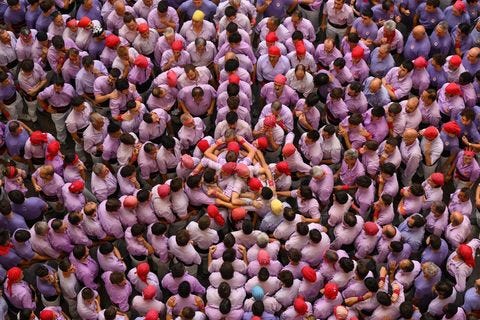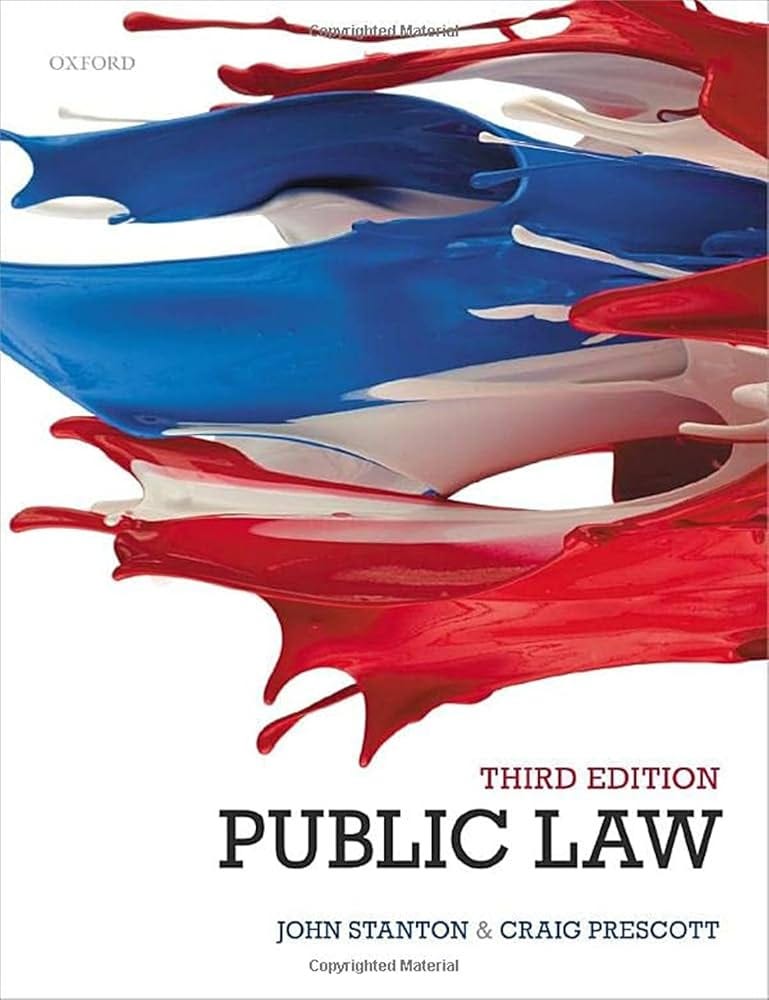The 232nd Block: Curiosities and conspiracies
Why are they everywhere?
This week…
Your reading time is about 5 minutes. Let’s start.

I need to understand if this only happens to me: Why are interesting people always involved in kooky woo-woo bs? Or am I meeting people in all the wrong places? If they are not outright far-right enthusiasts, they are into faux-progressive pseudo-intellectual conspirituality. Where are all the normies? Tbh, I don't mind telling someone close to me my horoscope for funsies, but I find it incredibly demeaning to have my entire character judged by the placements of celestial bodies at the time of my birth. Does it make sense?
Your Wikipedia this week: Horseshoe theory (under criticism)
And now, a selection of top stories on my radar, a few personal recommendations, and the chart of the week.
ICYMI: The Previous Block was about paywalls and propaganda. FWIW:
I investigated millions of tweets from the Kremlin’s ‘troll factory’ and discovered classic propaganda techniques reimagined for the social media age by Maksim Markelov (University of Manchester) for The Conversation.
The paywall gambit by Adam Piore for CJR.
CORRECTION NOTICE: None notified.CONSPIRACIES AND CRACKDOWNS
Serbia’s curious polygraph craze
Ingrid Gercama for New Lines Magazine:
Over the last few years, several high-ranking officials have taken polygraph tests and talked about the results in state-controlled media. They include ex-spy chief and Deputy Prime Minister Aleksandar Vulin, the head of the anti-narcotics department in the Belgrade police, and President Aleksandar Vucic himself—also in relation to gang leader Belivuk. Politicians are—perhaps unsurprisingly, considering that viewers do not see the test results—declared innocent or uncompromised by their examiners.
Sometimes, politicians get hooked up to lie detector machines on live television, which has shot polygraph testing into Serbia’s mainstream, says private detective Nikola Novak.
Lie detector tests sell like ice cream on hot days, says 39-year-old Novak, who has carried out such polygraph tests on TV. “I could close my company tomorrow and live like a king for the rest of my life,” he told me in an interview in Belgrade in May of this year.
The very reliable lie detector tests, which cannot be used as evidence in criminal in most countries in the world… including Serbia. Loosely linked:
Journalists in Cameroon struggle to report on the alleged death of President Paul Biya by Nalova Akua for CJR.
Online Hindutva groups’ misinformation campaign amid Bangladesh’s political crisis by Abdul Basit for GNET.
Addressing disinformation and electoral integrity in Malaysia by Nuurrianti Jalli and Khairy Jamaluddin for Fulcrum.
China’s censorship is among the toughest in the world. So why did it let Kanye West play? by Chris Lau for CNN.
The small Bulgarian streetwear shop designing clothes for the far-right Active Club movement by Michael Colborne for Bellingcat.
ON SCIENCE
Google’s Nobel prize winners stir debate over AI research
Martin Coulter for Reuters:
On Wednesday, Demis Hassabis—co-founder of Google’s AI unit DeepMind—and colleague John Jumper were awarded the Nobel prize in chemistry, alongside U.S. biochemist David Baker, for their work decoding the structures of microscopic proteins.
Former Google researcher Geoffrey Hinton, meanwhile, won the Nobel prize for physics on Tuesday, alongside U.S. scientist John Hopfield, for earlier discoveries in machine learning that paved the way for the AI boom.
Professor Dame Wendy Hall, a computer scientist and advisor on AI to the United Nations, told Reuters that, while the recipients’ work deserved recognition, the lack of a Nobel prize for mathematics or computer science had distorted the outcome.
“The Nobel prize committee doesn’t want to miss out on this AI stuff, so it’s very creative of them to push Geoffrey through the physics route,” she said. “I would argue both are dubious, but nonetheless worthy of a Nobel prize in terms of the science they’ve done. So how else are you going to reward them?”
The Nobel Prizes in scientific disciplines this year have all been awarded to men. Good job, boys! Loosely linked:
AI was central to two of 2024’s Nobel prize categories. It’s a sign of things to come by Nello Cristianini (University of Bath) for The Conversation.
AI is having its Nobel moment. Do scientists need the tech industry to sustain it? by Matt O’Brien for AP.
If the Nobel Prizes were designed today, what would change? by Philip Ball for Nature.
Meta suggests AI Northern Lights pics are as good as the real thing by Wes Davis for The Verge.
Other curious links, including en español et français
LONG READ | Medicine aims to return bodies to the state they were in before illness. But there’s a better way of thinking about health by Kate MacCord and Jane Maienschein for Aeon.
INFOGRAPHIC | Resisting cultural genocide by Zafirah Mohamed Zein for Kontinentalist.
INFOGRAPHIC | How open source investigations have helped reveal the costs of war by Dan Zedek for Storybench.
The Internet Archive is under attack, with a breach revealing info for 31 million accounts by Wes Davis for The Verge.
El gobierno de Milei celebra el "Día de la Raza", reivindica a Colón y quita el nombre de Kirchner de un edificio emblemático por Sebastián Fest en El Mundo.
El nuevo perfil de extrema derecha tiene más cara de mercado que de dictadura por Bernardo Gutiérrez en CTXT.
El peligro de la timba financiera y la máquina de generar nuevas adicciones por Silvina Friera en Pagina 12.
Les prédateurs sexuels vous disent merci : une association interpelle les parents qui publient des photos de leurs enfants sur les réseaux sociaux par Audrey Abraham dans Franceinfo.
De la presse à YouTube : des journalistes au service des créateurs de contenu par Alexandra Klinnik dans Méta-Media.
Autriche : qu’est-ce que le FPÖ ? Histoire et perspectives du parti d’extrême-droite qui vient de remporter les législatives par Hanna Corsini dans Le Grand Continent.
What I read, listen, and watch
I’m reading Public Law, 3rd ed. (2022) by John Stanton and Craig Prescott. It’s my textbook.
I’m listening to a podcast on the pseudoscience New Age roots of today’s conspirituality phenomenon about Helena “Madame” Blavatsky.
I’m watching DW’s documentary on the rise of the far-right in Germany.
Chart of the week
Nature posted on Threads that of the more than 600 Nobel medals awarded in scientific disciplines, just 26 have gone to women—none this year.




